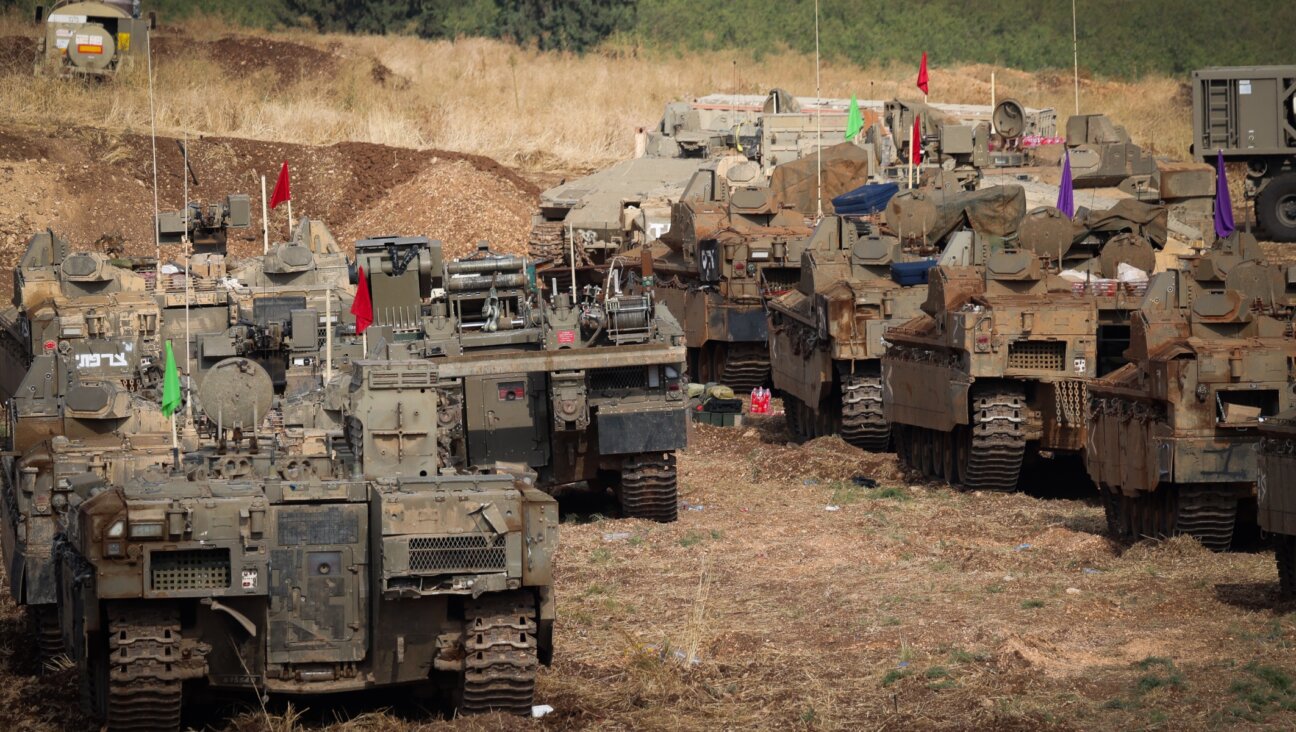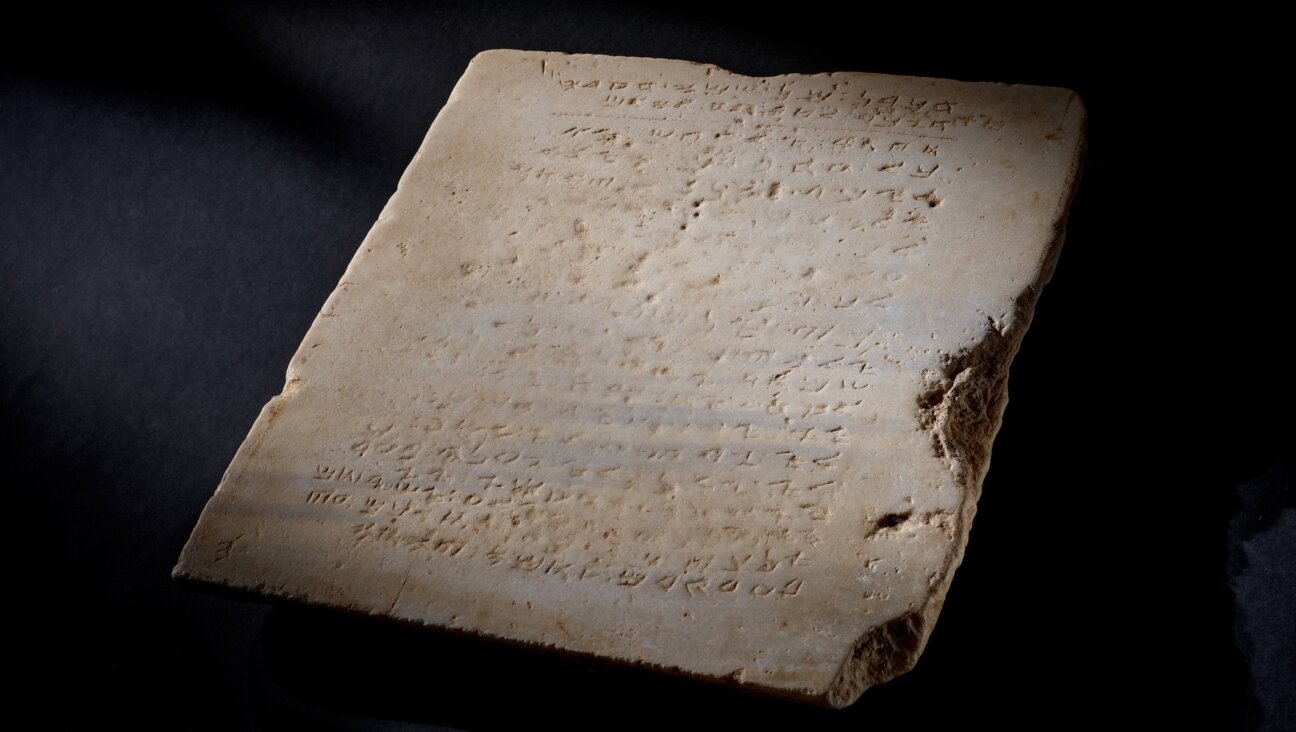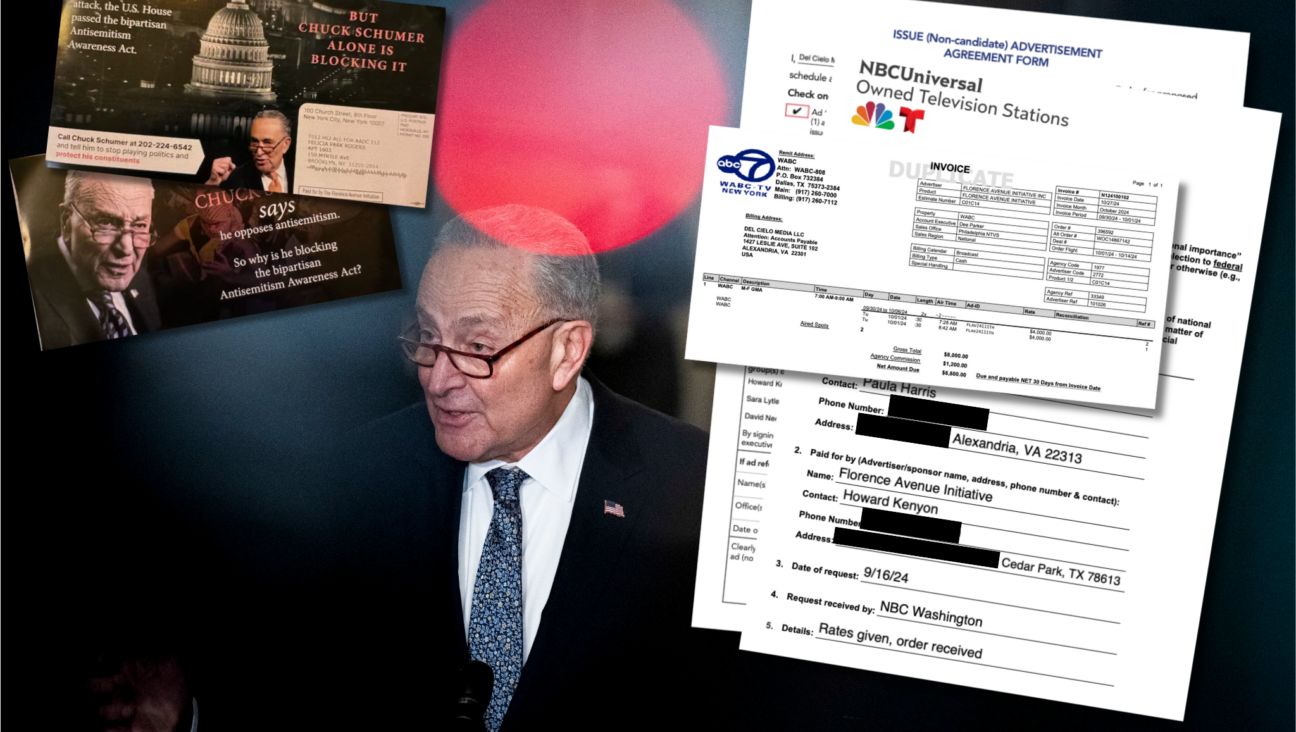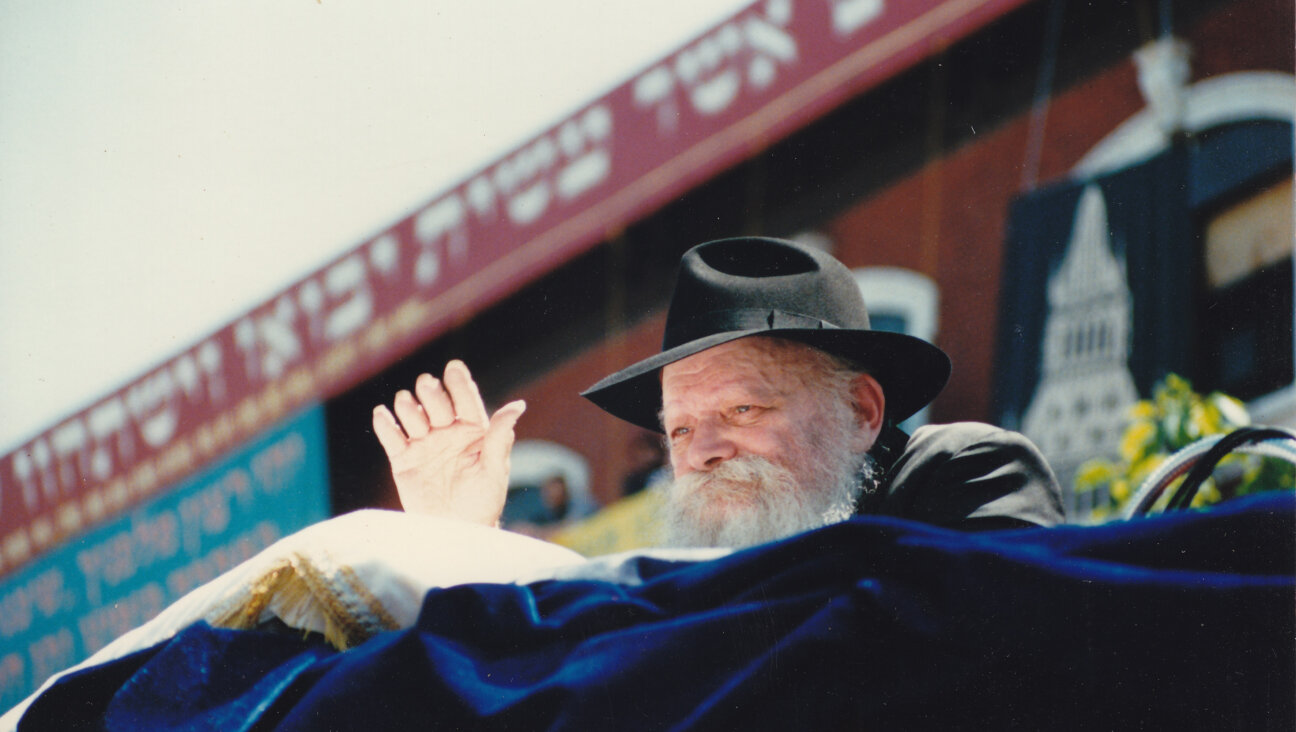Barack Obama Joins World Leaders for D-Day — Eyes on Ukraine

President Obama greets World War II veterans at the commemoration of the 70th anniversary of the D-Day landing on Normandy in France. Image by getty images
(Reuters) — World leaders and veterans paid tribute on the 70th anniversary of the World War Two D-Day landings to soldiers who fell in the liberation of Europe from Nazi German rule, as host France sought to use the event to achieve a thaw in the Ukraine crisis.
Wreaths, parades and parachute-drops honored history’s largest amphibious assault on June 6, 1944, when 160,000 U.S., British and Canadian troops waded ashore to confront German forces, hastening its defeat and the advent of peace in Europe.
Flanked by stooped war veterans, some in wheelchairs, U.S. President Barack Obama joined French President Francois Hollande to commemorate victory and reaffirm U.S-French solidarity before the 9,387 white marble headstones of fallen U.S. soldiers at the Normandy American Cemetery.
Obama said the 50-mile (80 km) stretch of Normandy coastline – where allied soldiers landed under fire on beaches codenamed Omaha, Utah, Gold, Sword and Juno – was a “tiny sliver of sand upon which hung more than the fate of a war, but rather the course of human history.”
“Omaha – Normandy – this was democracy’s beachhead,” said Obama. “And our victory in that war decided not just a century, but shaped the security and well-being of all posterity.”
The president sought to link the sacrifices of World War Two to U.S. servicemen killed in combat since the Sept. 11, 2001 attacks on the United States by al Qaeda Islamist militants.
The “9/11 generation of service members” understood that “people cannot live in freedom unless free people are prepared to die for it”, he said.
Hollande declared that France “would never forget the solidarity between our two nations, solidarity based on a shared ideal, an aspiration, a passion for freedom”.
Speaking earlier in the city of Caen, which was devastated in the fighting, Hollande honored French civilians killed during the allied invasion, calling D-Day “24 hours that changed the world and forever marked Normandy”.
Twenty-one foreign leaders are attending the series of commemorations, including Britain’s Queen Elizabeth and Prime Minister David Cameron, Canada’s Stephen Harper, Germany’s Angela Merkel and President Vladimir Putin of Russia.
But while the unity of allies and their bloody sacrifices were the central theme of D-Day remembrance, government leaders were sounding each other out in private on the most serious security crisis in Europe for more than two decades: Ukraine.
Russia’s annexation of Crimea in March and the current standoff in eastern Ukraine between government forces and pro-Russian separatists have plunged Moscow’s relations with the United States and European Union to a post-Cold War low.
Fighting continued in eastern Ukraine as Ukrainian forces fended off an attack by pro-Russian separatists on a border post there late on Thursday. The attack was repelled by air strikes but the insurgency has escalated in the past two weeks, killing scores and prompting some families to flee.
French diplomats say Hollande hopes to get Putin to at least shake the hand of Ukrainian president-elect Petro Poroshenko on the sidelines of the ceremonies, in what could represent a first step in defusing tensions.
Hollande discussed Ukraine at separate dinners on Thursday with both Obama and Putin in Paris, but officials reported no breakthrough. French Foreign Minister Laurent Fabius, who attended the talks, told RTL radio there was no question for now of a new round of sanctions against Russian interests.
Merkel and Putin had an hour-long meeting in Normandy on Friday which a Putin spokesman said “completely focused” on Ukraine. He gave no other details.
In Berlin, a government spokesman said Merkel had told Putin that Russia had “great responsibility” to help bring peace to Ukraine.
In an article for the newspaper Ouest France published on Friday, the German leader said: “Recent weeks have shown us that dangerous old ways of thinking are by no means banished from the history books.
“Peace and freedom can be put in doubt as the Ukraine conflict painfully shows us. It is a great worry to see new rifts and dividing lines forming,” Merkel wrote.
Putin, who has said he is open to meeting both Obama and Poroshenko in France, has yet to recognize the legitimacy of the Ukrainian president-elect who is set to be sworn in on Saturday, although Russia is sending its ambassador to his inauguration.
A Group of Seven (G7) summit of industrialized nations in Brussels on Thursday, from which Putin was excluded, urged Russia to work with Kiev’s new authorities to restore stability in eastern Ukraine or face possible tougher sanctions.
U.S. Chief of Naval Operations Jonathan Greenert, speaking just before the cemetery tribute, told Reuters the main parallel between 1944 and now was the strength of US-allied ties.
“You cannot underestimate the power of a coalition and an alliance when it goes into action,” Greenert said.
On Thursday, Obama told reporters the West would “have no choice to respond” with new sanctions if Russia failed to recognize Ukraine’s new government and work to calm pro-Russian gunmen in its former Soviet neighbor.
“There is a path in which Russia has the capacity to engage directly with President Poroshenko now. He should take it.”
Behind the facade of G7 unity, differences emerged over a 1.2 billion euro ($1.63 billion) French contract to sell two Mistral helicopter carriers to Russia. Obama said Paris should have pressed “the pause button” on the deal.
Foreign Minister Fabius said the contracts, mostly paid up, stood “for many jobs.”
“The French tradition, which is the same as the United States’, is to honor its contracts.”
But Defense Minister Jean-Yves Le Drian told France Inter radio a decision would be made given the international situation later this year when the first ship is due to be delivered.
Washington says the deal sends the wrong message to Russia at a time of sanctions imposed by Western states on Moscow over the conflict in Ukraine.
A message from our CEO & publisher Rachel Fishman Feddersen

I hope you appreciated this article. Before you go, I’d like to ask you to please support the Forward’s award-winning, nonprofit journalism during this critical time.
We’ve set a goal to raise $260,000 by December 31. That’s an ambitious goal, but one that will give us the resources we need to invest in the high quality news, opinion, analysis and cultural coverage that isn’t available anywhere else.
If you feel inspired to make an impact, now is the time to give something back. Join us as a member at your most generous level.
— Rachel Fishman Feddersen, Publisher and CEO























